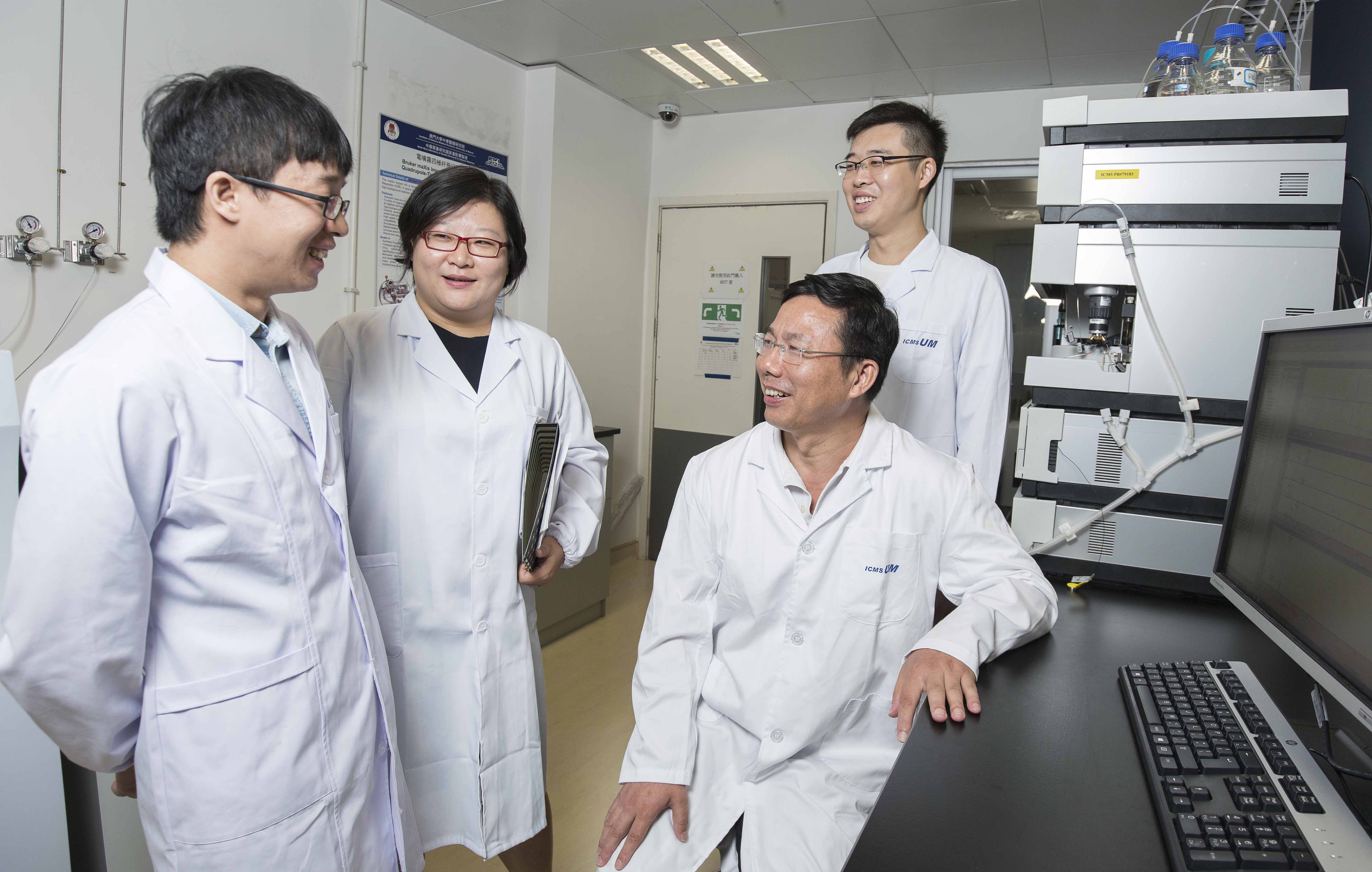A team from the University of Macau (UM) State Key Laboratory of Quality Research in Chinese Medicine (SKL-QRCM) recently achieved a breakthrough by creating a qualitative and quantitative method to determine the specificity of polysaccharides. This method can be used to evaluate the health benefits of traditional Chinese medicinal soup. It has received multiple invention patents in China and has been applied for the first time in the evaluation of dietary supplements made with lingzhi mushroom in the United States. The method will provide a new perspective for consumers to evaluate the quality of dietary supplements currently available on the US market.
The team was led by Prof Li Shaoping, deputy director of the SKL-QRCM. His paper titled ‘Evaluation on Quality Consistency of Ganoderma Lucidum Dietary Supplements Collected in the United States’ has been published in Scientific Reports, a journal under the authoritative international journal Nature. The corresponding authors of the paper are Anton Bzhelyansky, a staff member of the Science-Dietary Supplements and Herbal Medicines Division under the Science Support of the United States Pharmacopeia; and Zhao Jing, an associate professor from UM’s Institute of Chinese Medical Sciences. According to Prof Li, polysaccharides have multiple biological activities, including antibacterial, antiviral, and anticoagulant activities. They can help to improve liver function, reduce blood viscosity, increase myocardial contraction, and adjust heart rhythm. They can also serve as antidiabetes, sedation, and analgesia, and can help to relieve asthma and remove phlegm. Polysaccharides are widely used in developing commercial dietary supplements. However, the quality control process is a challenge because of its complexity and chemical diversity. Through more than a decade of hard work, Prof Li successfully developed a qualitative and quantitative method to determine the specificity of polysaccharides. The method effectively solved the problems related to the development and production of dietary supplements with polysaccharides and has received multiple invention patents in China. The method has been applied in the evaluation of the quality of lingzhi dietary supplements in the US. The research study also received a first prize at a national outstanding paper award and another first prize in the outstanding paper category from the Chinese Pharmaceutical Association.
Prof Li currently serves as the associate editor-in-chief of the internationally-renowned Journal of Separation Science and the Chinese medicinal journal Chinese Medicine. He is also a member of the editorial boards of various leading journals in the fields of pharmaceutical analysis, Chinese medical sciences, and functional food, a member of the board of the Chinese Pharmaceutical Association, and the deputy director of a professional committee for pharmaceutical analysis under the association.
Source: Institute of Chinese Medical Sciences
UM Website:www.umac.mo

